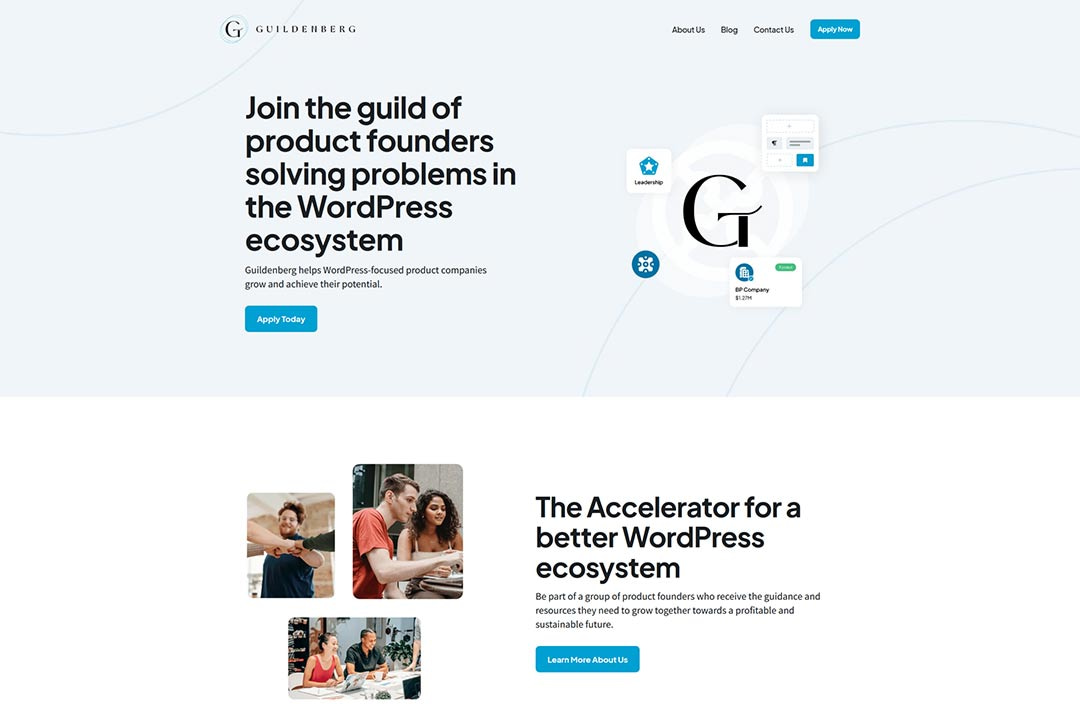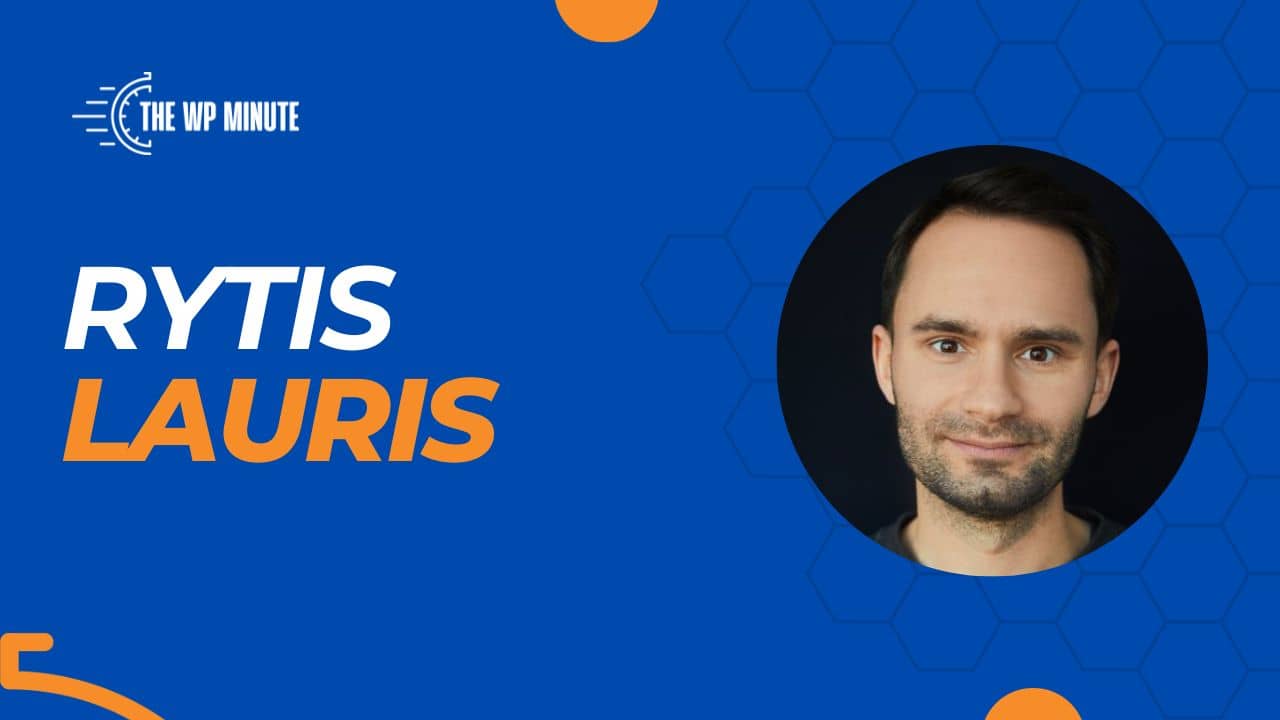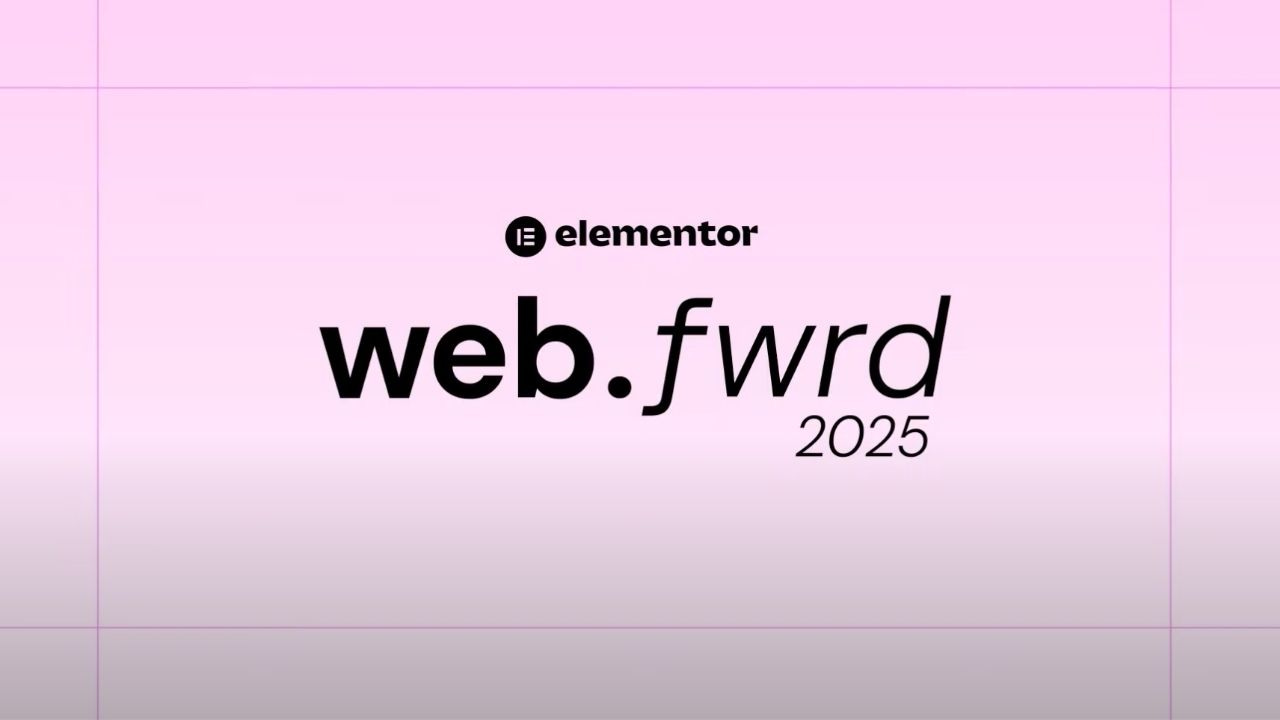The WordPress ecosystem is a powerful force. Themes and plugins offer endless possibilities. They help users kickstart businesses. And they play a role in democratizing publishing.
But product founders face challenges. The ecosystem is anything but cohesive. Standards for code and marketing are non-existent. And new products have difficulty breaking through.
Some might point to the WordPress project for guidance. And perhaps it could implement rules and regulations. But it must walk a fine line. It’s not in their interest to pick winners and losers.
That leaves product founders to tackle these issues. And Guildenberg is an organization that aims to do just that. By harnessing the power of collaboration, they hope to help products succeed. And they want to do so in a way that benefits everyone.
How does it work? And what impact could it have on the WordPress ecosystem? Keep reading to get an inside perspective.
Q&A With Jonathan Wold, CEO of Guildenberg
To learn more about Guildenberg’s aspirations, The WP Minute spoke with CEO Jonathan Wold. We asked him about the origins of the guild. And he shared his vision for bringing positive (and profitable) change.
The following Q&A has been lightly edited for clarity.
The WP Minute: Tell us about the concept of Guildenberg. How did it come about?
Jonathan Wold: I wrote about the concept of a guild for WordPress product creators back in August of 2022. It was the result of years of thinking about WordPress as an ecosystem, thinking through the benefits and tradeoffs we enjoy being open source and decentralized.
Ultimately, I reached the conclusion that product creators are the key to both growing our ecosystem and mitigating the tradeoffs of decentralization. The next step was figuring out a way to solve problems for product creators and that’s where the idea of a “guild” came about as a way to align incentives and facilitate cooperation/collaboration across the ecosystem in a way that creates value for all involved.
TWPM: What are the biggest challenges that WordPress product founders face?
JW: There are three primary challenges we see. First, product founders who start in the WordPress ecosystem (versus coming in from the world of SaaS) tend to struggle with monetization (business models, pricing, etc). WordPress products as a whole tend to be poorly positioned and undervalued.
Second, products don’t tend to work well together. Compatibility issues are the number one cost driver that I see in my conversations with hosting providers.
Third, product founders struggle with getting distribution. I see great WordPress products, solving problems for their audience that hardly anyone has heard about. By first solving any monetization problems and ensuring compatibility with other key players we lay a foundation for growth through distribution.
TWPM: What are the criteria for joining the program? Is there anything specific you’re looking for in a product?
JW: We have two programs for product creators. Our accelerator is for early-stage products that need a lot of help and extra resources. Our partner program is for later-stage products that just need distribution.
What we’re looking for are products that have a clearly defined audience and are focused on solving a problem for that audience. What we do then is help that product get in front of the audience through deals with our distribution partners (hosting providers).
We’re looking for product founders who are open to change, ready for growth and want to work together with others to grow the ecosystem for all of our benefit.
TWPM: When a product founder joins Guildenberg, what can they expect?
JW: At this stage, and for the next few years, we’re taking a hands-on approach, getting into the details, and doing a lot more than a typical accelerator or partnership program would do to ensure the success of those we work with. You can probably expect a lot of change as we experiment with partners to figure out what works and what doesn’t as we create momentum.
TWPM: There are a lot of WordPress products that occupy a niche. For example, there are multiple forms plugins, or general-purpose themes. Would you work with competing products? How would you handle that scenario?
JW: Ultimately, yes, we’d welcome competing products, as long as they play by the rules and uphold community values. My ideal is to work with products that, if they do compete, do so more in overlap rather than directly.
A forms plugin, for instance, might focus on a different audience. Our overall goal is to encourage more efficiency across the ecosystem and, at least for the first few years, I expect us to favor folks who don’t compete directly with another product in Guildenberg.
TWPM: Standards are mentioned as part of the program. How would you like to impact that area of the WordPress ecosystem?
JW: A core motivation for us in starting Guildenberg is to “open source” the work we do to benefit the ecosystem as a whole. As we create standards for performance, security, interoperability, etc., it’s to our collective benefit for the ecosystem to have access and a multiway exchange to those standards as products and hosting providers work together.
The heart of our work is to align incentives that give folks a reason to collaborate together beyond it being a good thing to do. If we do our jobs well, I expect many of the important but not urgent parts of the WordPress project to get attention and for standards and best practices across the ecosystem to steadily improve as they get the resources and attention they’ve lacked.
TWPM: What are the long-term goals for Guildenberg? Where would you like to be in, say, 5 years?
JW: Long-term all the work we’re doing is laying a foundation for an “app store” that spans the majority of the WordPress ecosystem and solves the three problems (monetization, compatibility, and distribution) in a holistic way.
Five years from now I expect us to have made a significant impact on the health and value of the product space in WordPress and to have made progress towards the app store vision.
TWPM: Anything else you’d like to share?
JW: Join us! If you’re interested in what we’re doing, reach out. We’d love to talk.
Can Guildenberg Open Source Success?
The open-source nature of WordPress is rightly celebrated. This spirit of collaboration has kept the project strong for 20 years.
Therefore, it makes sense to apply these principles to its ecosystem. Why should WordPress themes and plugins be any different? The traditional model has taken us this far. But it seems like a different approach could be beneficial.
Product founders would have a proven playbook to follow. And those tempted to push boundaries in terms of marketing may think again. Seeing major players succeed could be highly influential.
Will everyone play by the rules? It’s unlikely. But collaboration among product makers provides the incentive to do so. That could positively impact the WordPress ecosystem.
Our thanks to Jonathan Wold for speaking with us! You can connect with Jonathan on Twitter and the Guildenberg website.
Join The Newsletter
Get your favorite 5 minutes of WordPress news for busy professionals every week — 100% Free! Join the WP Minute Newsletter below 👇









